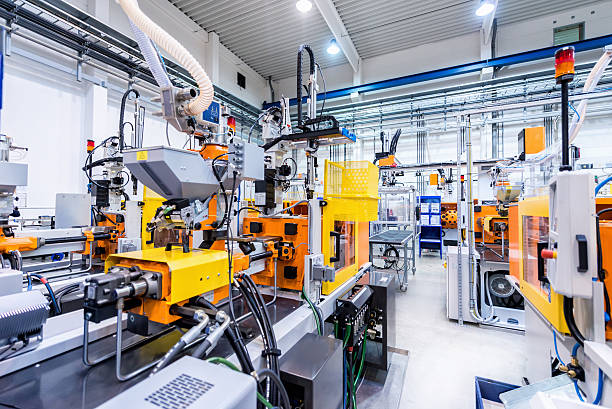In the consistently evolving scene of manufacturing and industrial areas, effectiveness is foremost. With headways in innovation, the integration of automation has turned into a foundation for enhancing efficiency, reducing costs, and ensuring quality. In the Unified Kingdom, the reception of industrial automation parts has been instrumental in revolutionizing different industries, from car manufacturing to drugs. We should dive into the domain of industrial automation parts in UK and investigate how they are shaping the fate of manufacturing.
The Development of Industrial Automation:
The UK has a rich history in manufacturing, dating back to the Industrial Unrest. Nonetheless, as innovation advanced, so did the requirement for more refined and effective creation techniques. This prompted the rise of industrial automation, which involves the utilization of control frameworks, machinery, and advanced mechanics to streamline processes and minimize human intervention.
Key Parts of Industrial Automation:
Industrial automation envelops a wide exhibit of parts, each playing a critical job in optimizing tasks. A portion of the key parts include:
Sensors and Actuators: These are the tangible organs of automation frameworks, detecting changes in the climate and initiating suitable activities. Whether it’s temperature sensors in a synthetic plant or closeness sensors on a creation line, these parts are fundamental for gathering information and enabling continuous navigation.
Programmable Rationale Regulators (PLCs): PLCs act as the brain of automation frameworks, controlling different cycles in view of predefined rationale. These ruggedized PCs are profoundly flexible and can be customized to execute errands with accuracy, making them indispensable in industrial settings.
Industrial Robots: From mechanical production systems to stockrooms, robots have become omnipresent in current manufacturing offices. These robotized machines succeed at tedious undertakings, like welding, painting, and packaging, allowing organizations to help proficiency and maintain predictable quality principles.
Human-Machine Interface (HMI): HMIs give an easy to understand interface to interacting with automation frameworks. Administrators can screen processes, change settings, and investigate issues through intuitive touchscreens or graphical showcases, enhancing generally control and perceivability.
Movement Control Frameworks: Whether it’s controlling the speed of transport lines or coordinating the development of mechanical arms, movement control frameworks assume a fundamental part in optimizing movement and positioning within industrial conditions. These frameworks depend on servo drives, engines, and input gadgets to guarantee exact and synchronized movement.
The Job of Industrial Automation Parts in the UK:
In the UK, industrial automation parts are instrumental in driving seriousness and innovation across different areas. Auto producers use automation to streamline gathering cycles and fulfill stringent quality guidelines. Drug organizations influence automation to upgrade drug creation productivity and guarantee administrative consistence. Furthermore, industries like food and drink, aviation, and gadgets depend on automation to remain ahead in the present speedy market.
Difficulties and Potential open doors:
While the reception of industrial automation offers various advantages, it additionally presents difficulties, for example, initial investment costs, labor force upskilling, and network safety gambles. In any case, the drawn out benefits, including increased efficiency, further developed security, and more noteworthy adaptability, far offset these difficulties. Besides, with the ascent of advances like man-made consciousness and the Internet of Things (IoT), the potential for additional innovation in industrial automation is immense.
End:
Industrial automation parts assume an essential part in driving proficiency, dependability, and innovation in the UK’s manufacturing scene. By embracing automation, organizations can remain cutthroat in a quickly evolving worldwide market while creating more secure and more sustainable work environments. As innovation continues to propel, the fate of industrial automation in the UK looks promising, with vast opportunities for streamlining and development.


